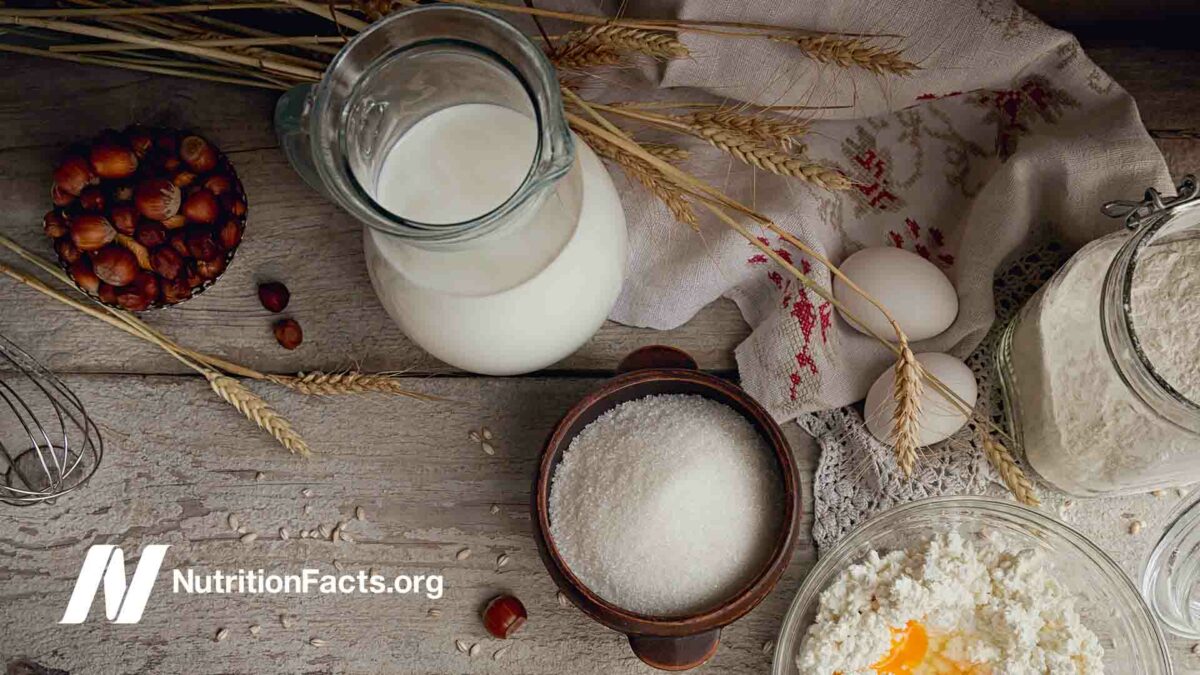
Inflammation
Inflammation may play a role in premature aging, periodontal disease, obesity, skin aging, diabetes, multiple sclerosis, cancer, irritable bowel syndrome, and inflammatory bowel diseases, such as Crohn’s disease and ulcerative colitis, among many other chronic health concerns.
Antioxidant-rich diets appear to protect against stroke by preventing the circulation of oxidized fats in the bloodstream that may damage the sensitive walls of small blood vessels in the brain. They can also help decrease artery stiffness, prevent blood clots from forming, and lower blood pressure and inflammation. Whereas all whole plant foods may have anti-inflammatory effects, some plants are better than others. High-antioxidant fruits and vegetables, such as berries and greens, have been found to douse systemic inflammation significantly better than the same number of servings of more common low-antioxidant fruits and veggies, such as bananas and lettuce.
Research dating back half a century suggests tart cherries are so anti-inflammatory that they can be used to successfully treat a painful type of arthritis called gout. Cherries can reduce the level of inflammation among healthy people too (as measured by a drop in C-reactive protein levels). A note of caution: For the same reason that high doses of anti-inflammatory drugs such as aspirin should be avoided during the third trimester of pregnancy, cocoa, berries, and other foods high in anti-inflammatory polyphenols should only be eaten in moderation in late pregnancy.
Studies have shown that consuming more fruits and vegetables may not only halt progression of chronic obstructive pulmonary disease (COPD), such as emphysema and chronic bronchitis, but appears to improve lung function, and risks of suffering from allergic asthma may be halved by eating two or more servings of vegetables a day.
What about our mental health? Components in certain foods may increase the risk of depression, such as arachidonic acid, that is blamed for potentially impairing mood by inflaming the brain. The top-five sources of this inflammation-promoting compound in the American diet are chicken, eggs, beef, pork, and fish, although chicken and eggs alone contribute more than the other top sources combined. There are data suggesting that people with higher levels of arachidonic acid in their blood may end up at significantly higher risk of suicide and episodes of major depression. Overall, those eating the Standard American Diet may consume about nine times more arachidonic acid than those eating plant-based diets.
For substantiation of any statements of fact from the peer-reviewed medical literature, please see the associated videos below.
Popular Videos for Inflammation

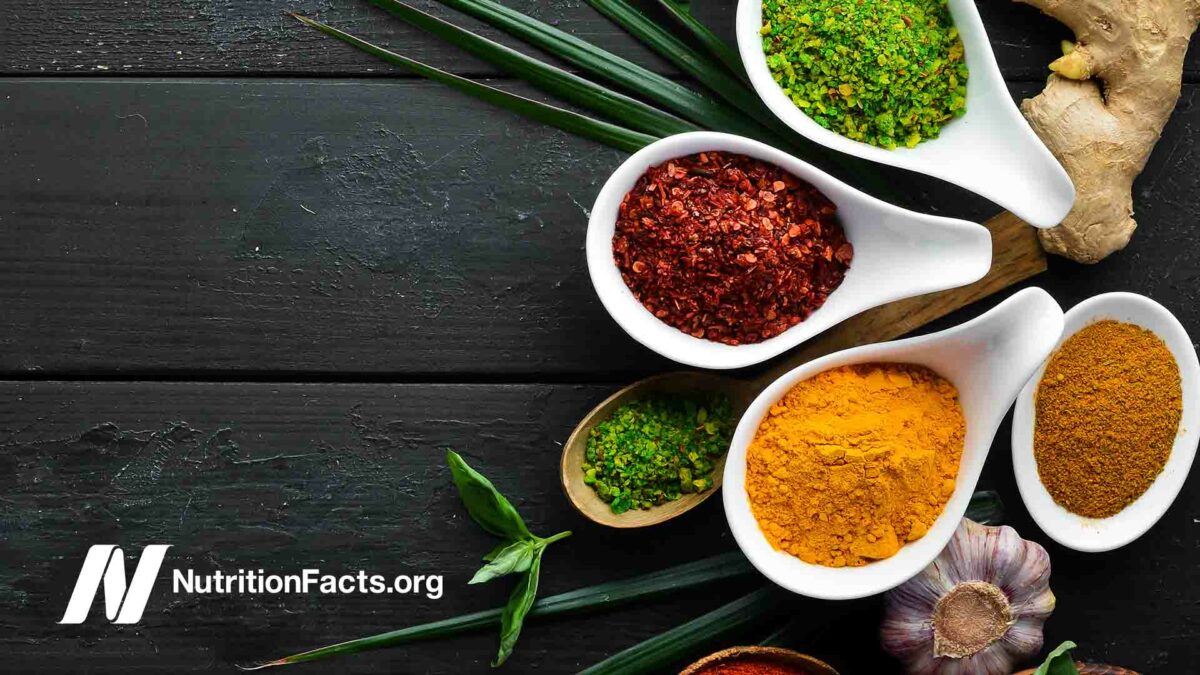
Which Foods Are Anti-Inflammatory?
Foods that reduce inflammation. What does an anti-inflammatory diet look like?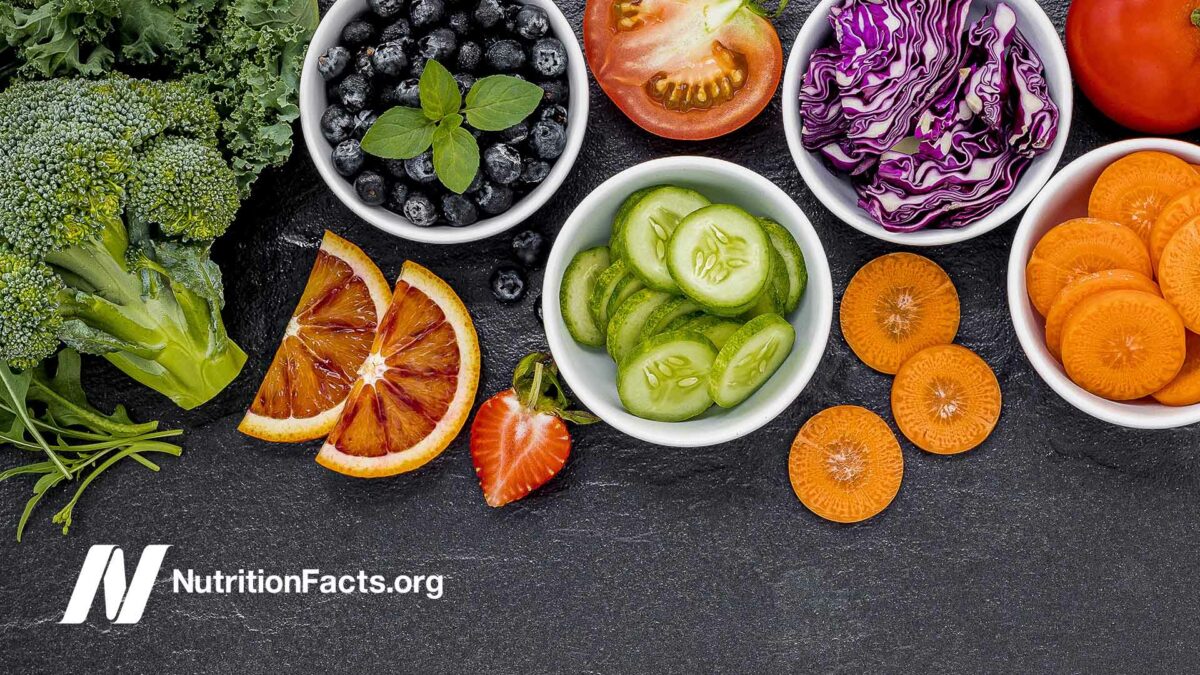
Anti-Inflammatory Antioxidants
Even when choosing the same quantity of fruits and vegetables, those making higher antioxidant choices...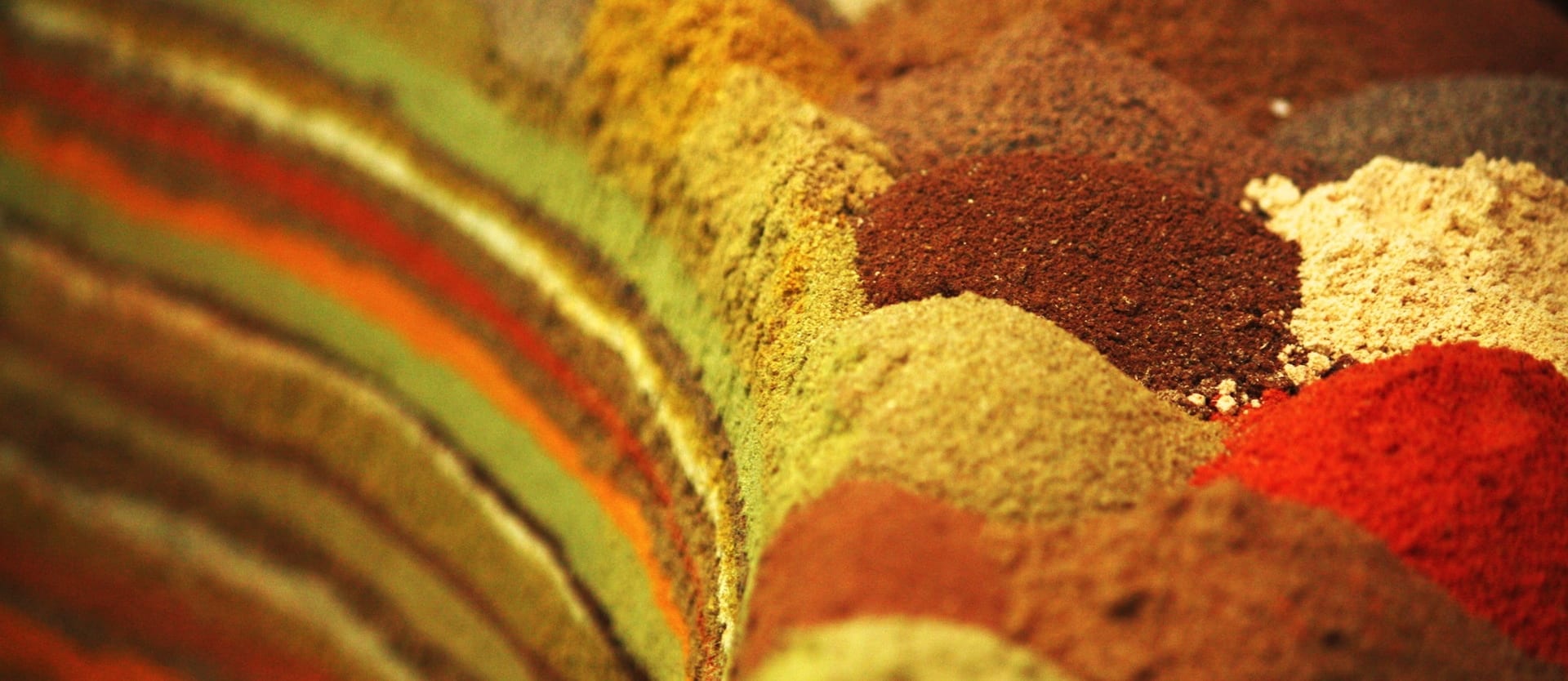
Which Spices Fight Inflammation?
An elegant experiment is described in which the blood of those eating different types of...
Anti-Inflammatory Effects of Purple Potatoes
Antioxidant, anti-inflammatory properties of white compared to yellow and purple potatoes. Purple potatoes may also...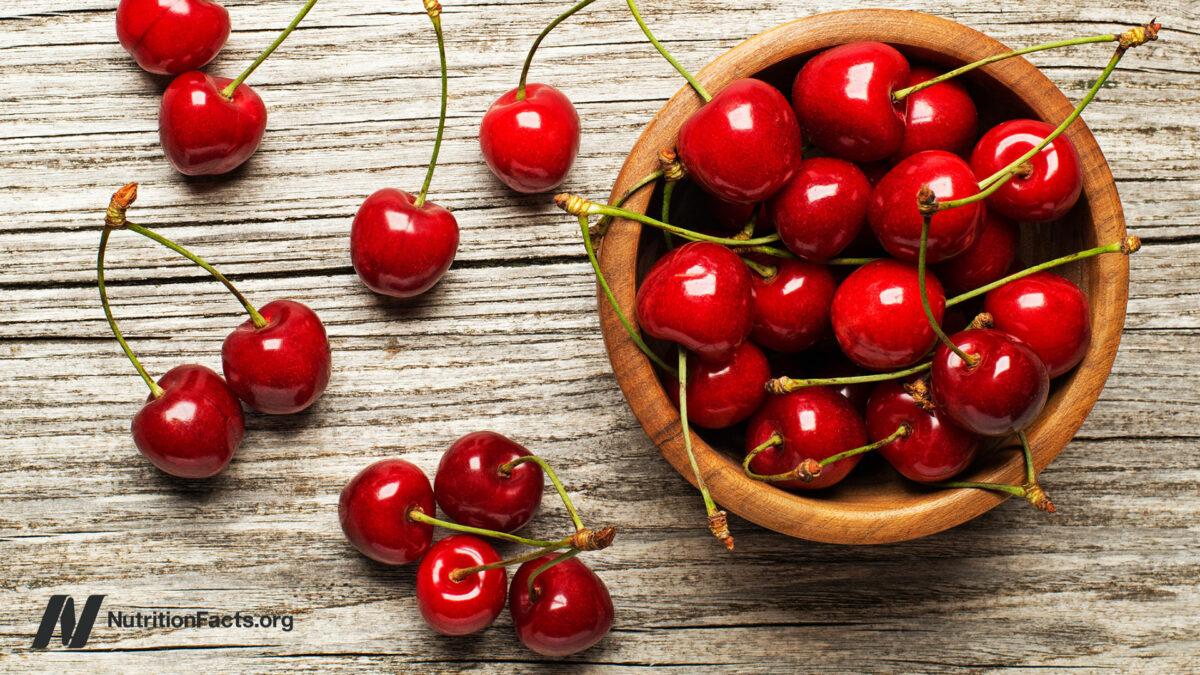
Anti-Inflammatory Life Is a Bowl of Cherries
Sweet red Bing cherries may act as a selective COX-2 inhibitor, reducing inflammation without the...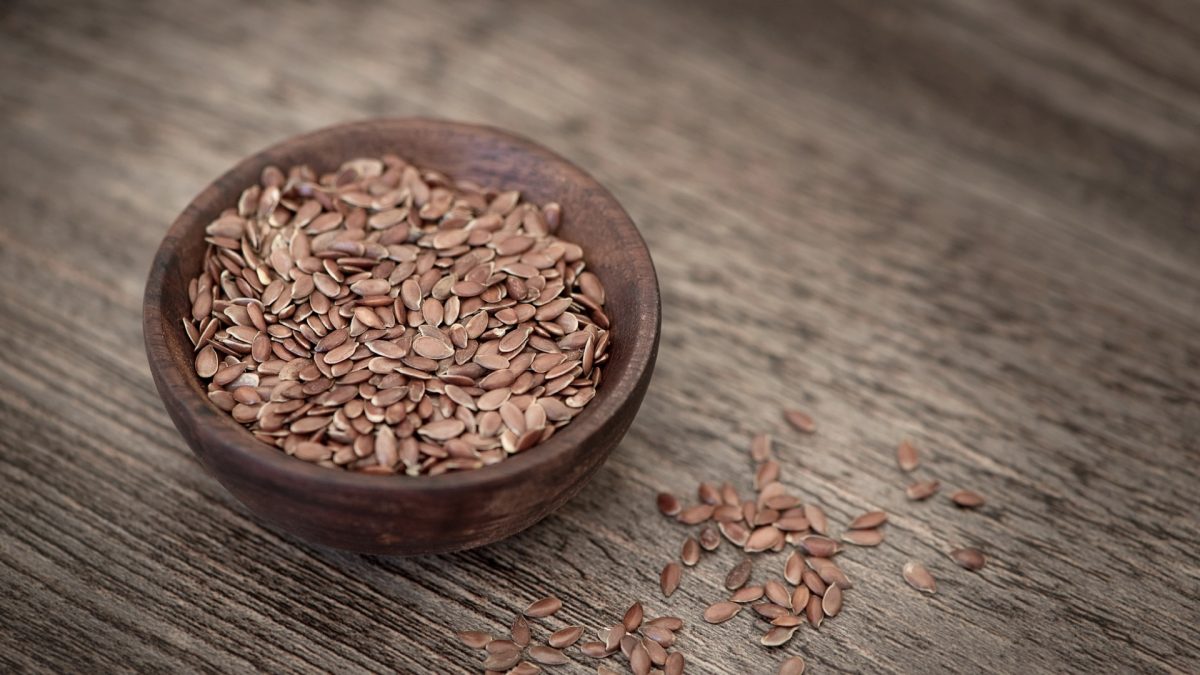
Benefits of Flaxseeds for Inflammation
Elevated levels of pro-inflammatory, aging-associated oxylipins can be normalized by eating ground flaxseed.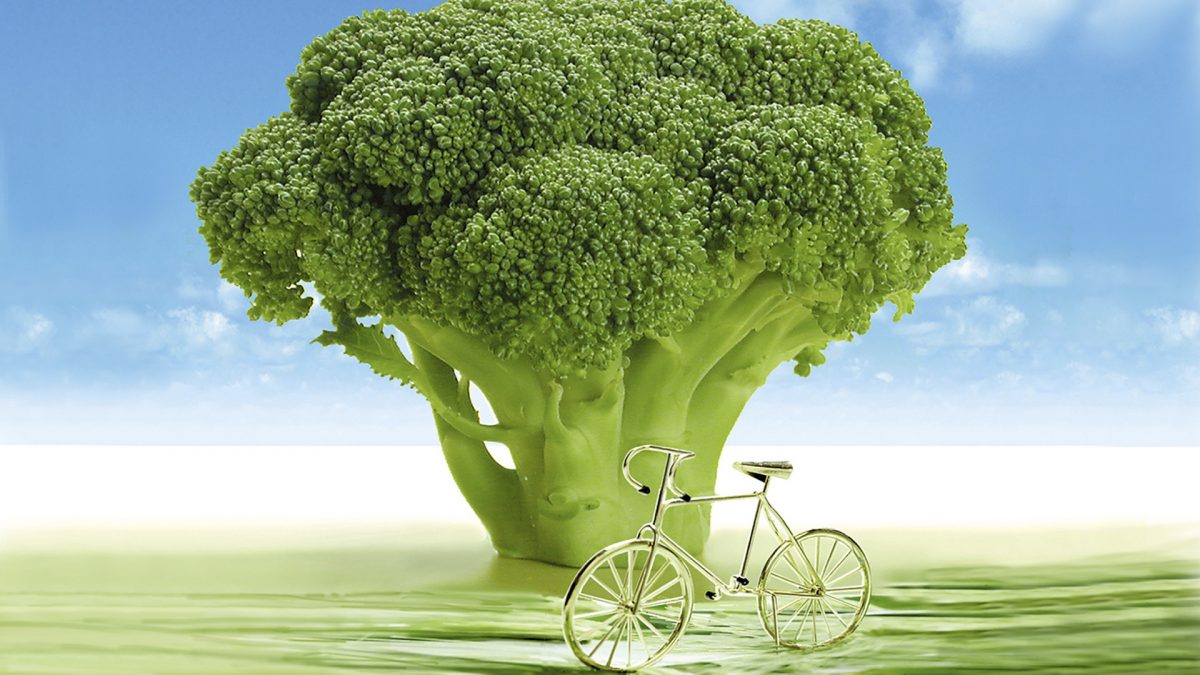
Best Food to Counter the Effects of Air Pollution
There is a food that offers the best of both worlds—significantly improving our ability to...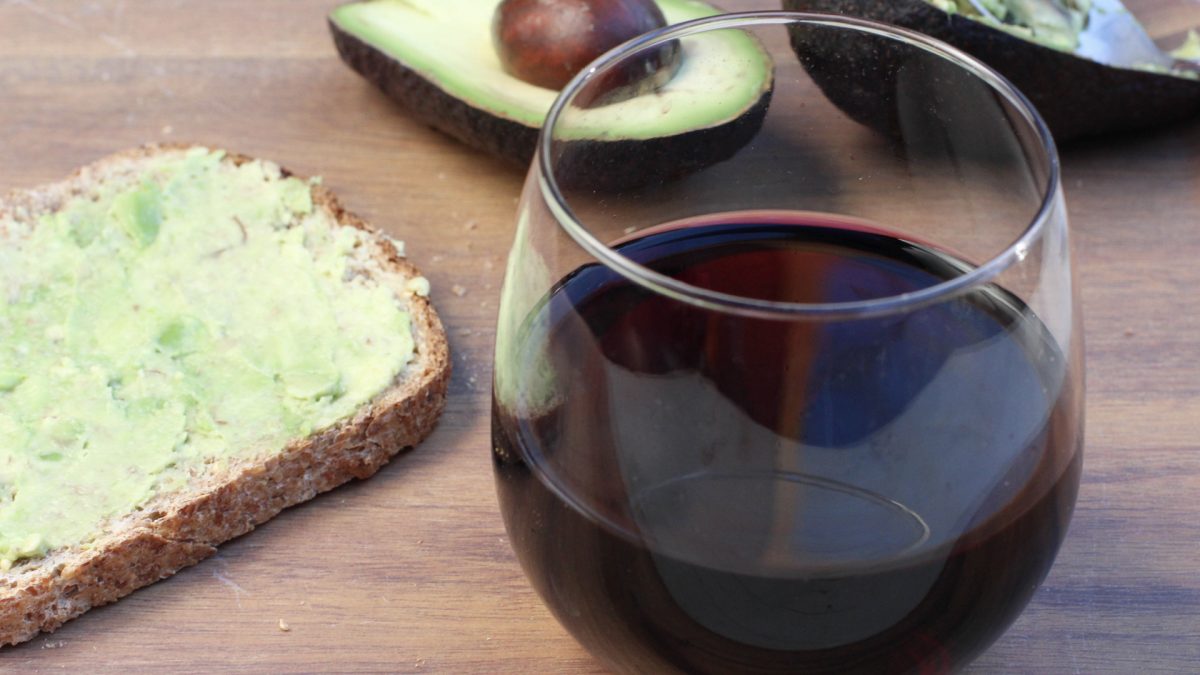
The Effects of Avocados and Red Wine on Meal-Induced Inflammation
Whole plant sources of sugar and fat can ameliorate some of the postprandial (after-meal) inflammation...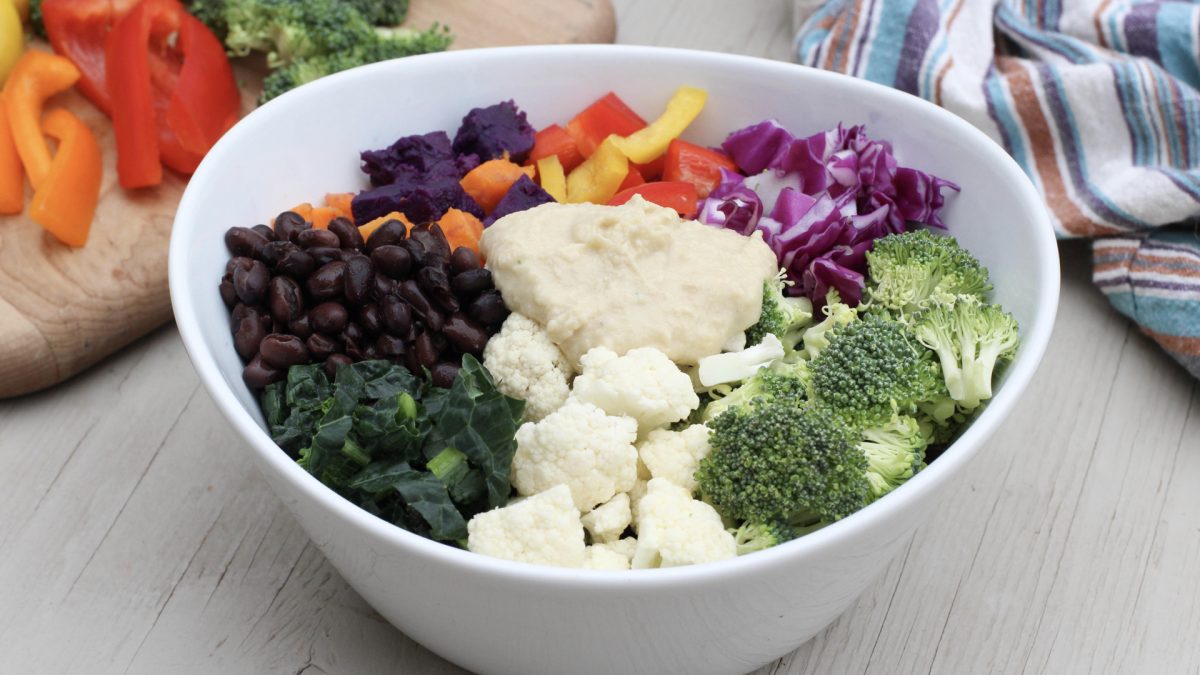
How to Prevent Blood Sugar & Triglyceride Spikes After Meals
Within hours of eating an unhealthy meal, we can get a spike in inflammation, crippling...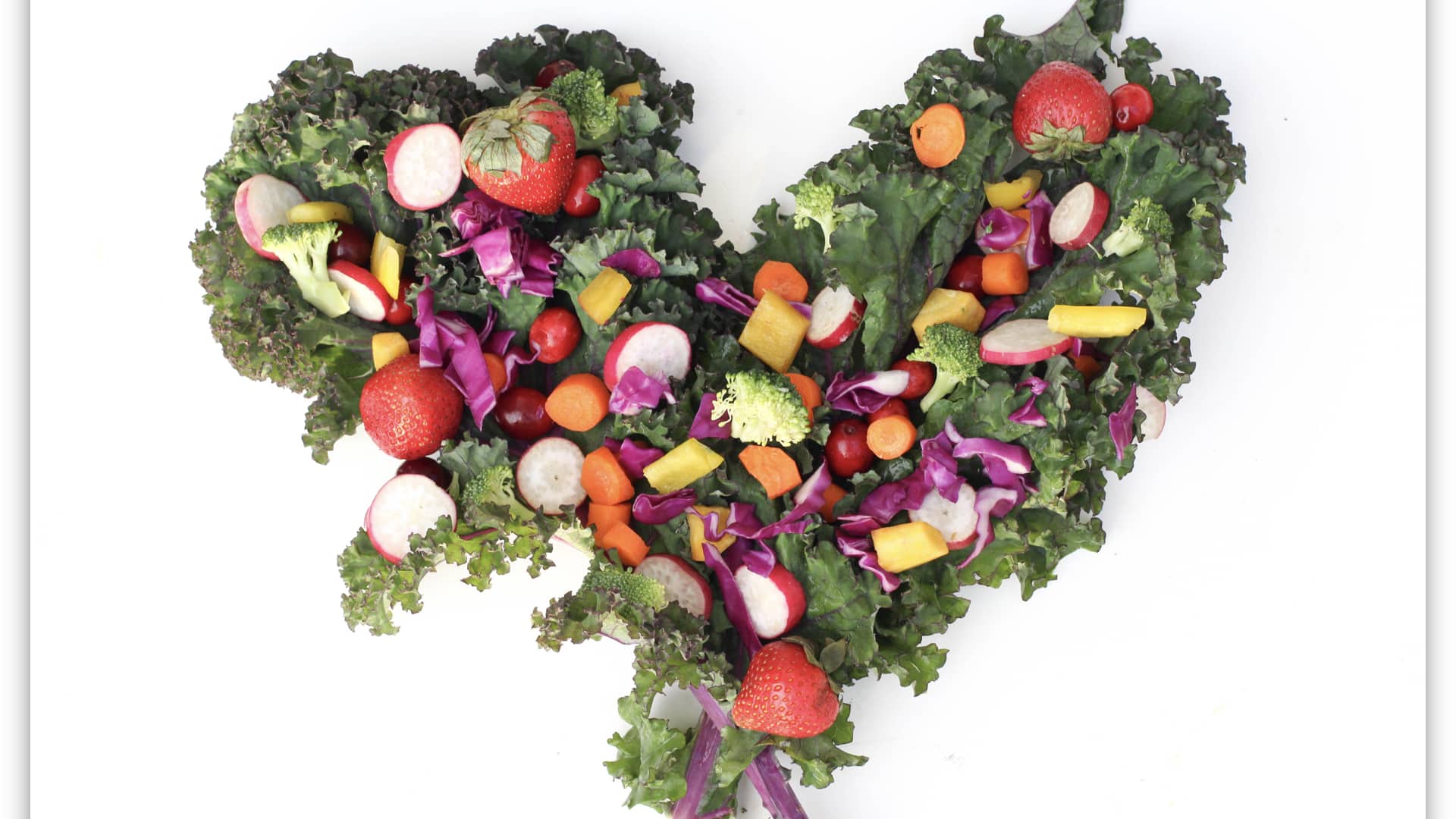
Best Foods to Improve Sexual Function
Selecting foods to improve pelvic blood flow and decrease inflammation both immediately after a meal...
Anti-Inflammatory Diet for Depression
If depression can be induced with pro-inflammatory drugs, might an anti-inflammatory diet be effective in...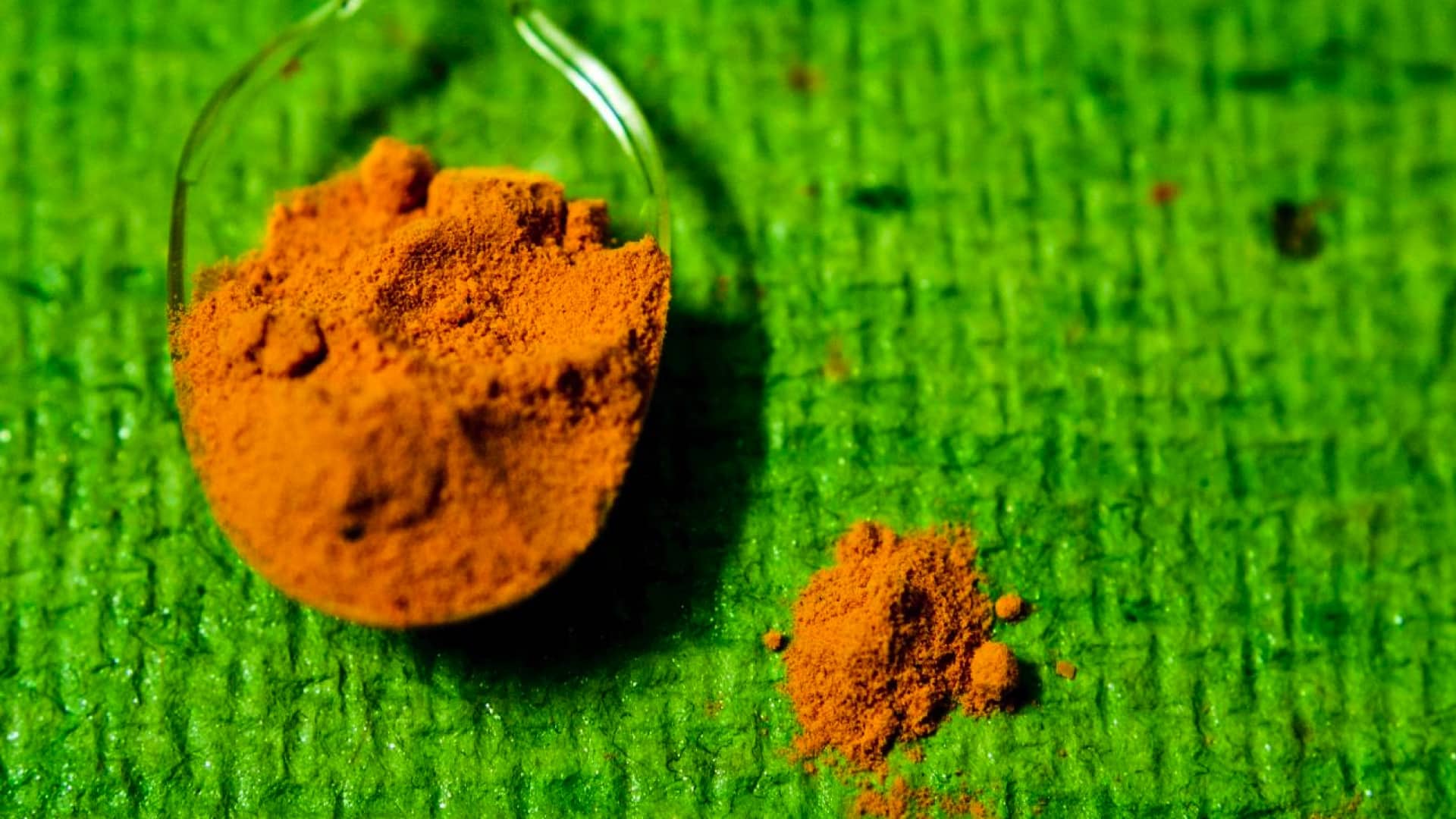
Speeding Recovery from Surgery with Turmeric
The anti-inflammatory effect of curcumin, the pigment in the spice turmeric, was put to the...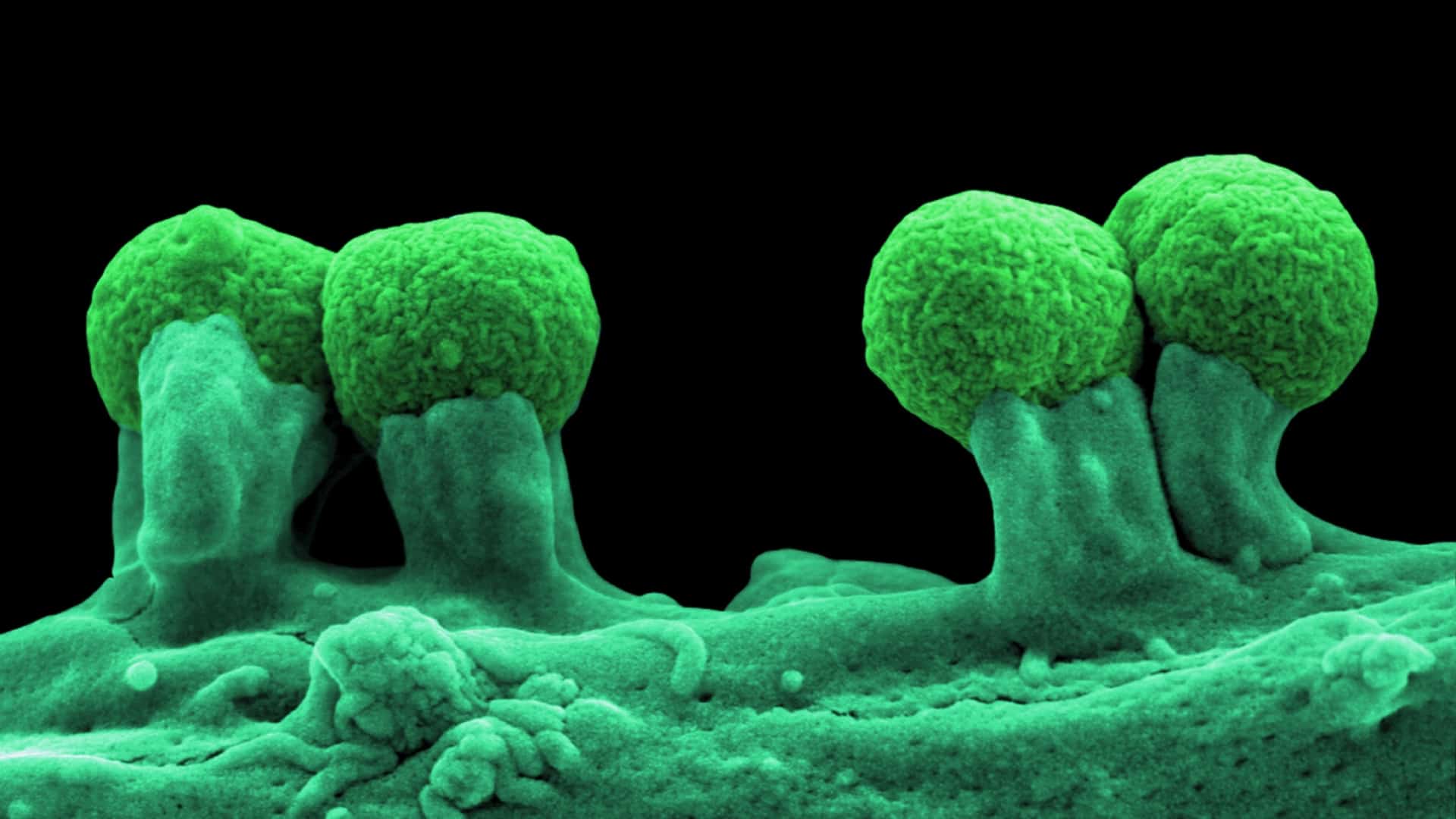
Prebiotics: Tending Our Inner Garden
Why does our immune system confuse unhealthy diets with dysbiosis—an overrun of bad bacteria in...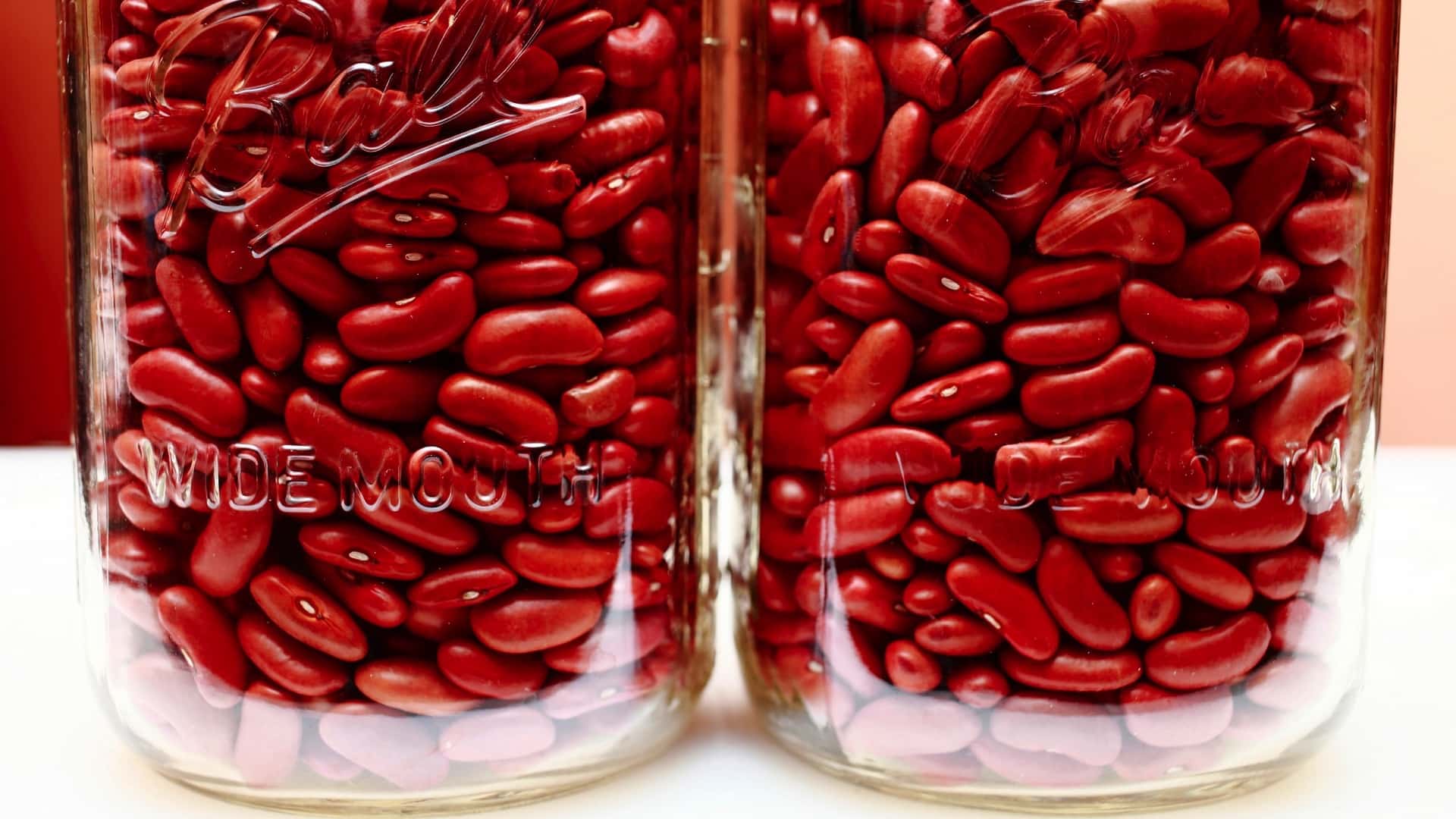
Which Type of Protein Is Better for Our Kidneys?
Anti-inflammatory drugs abolish the hyperfiltration and protein leakage response to meat ingestion, suggesting that animal...
Plant-Based Diets for Improved Mood and Productivity
The most comprehensive controlled trial of diet and mood finds that a plant-based nutrition program...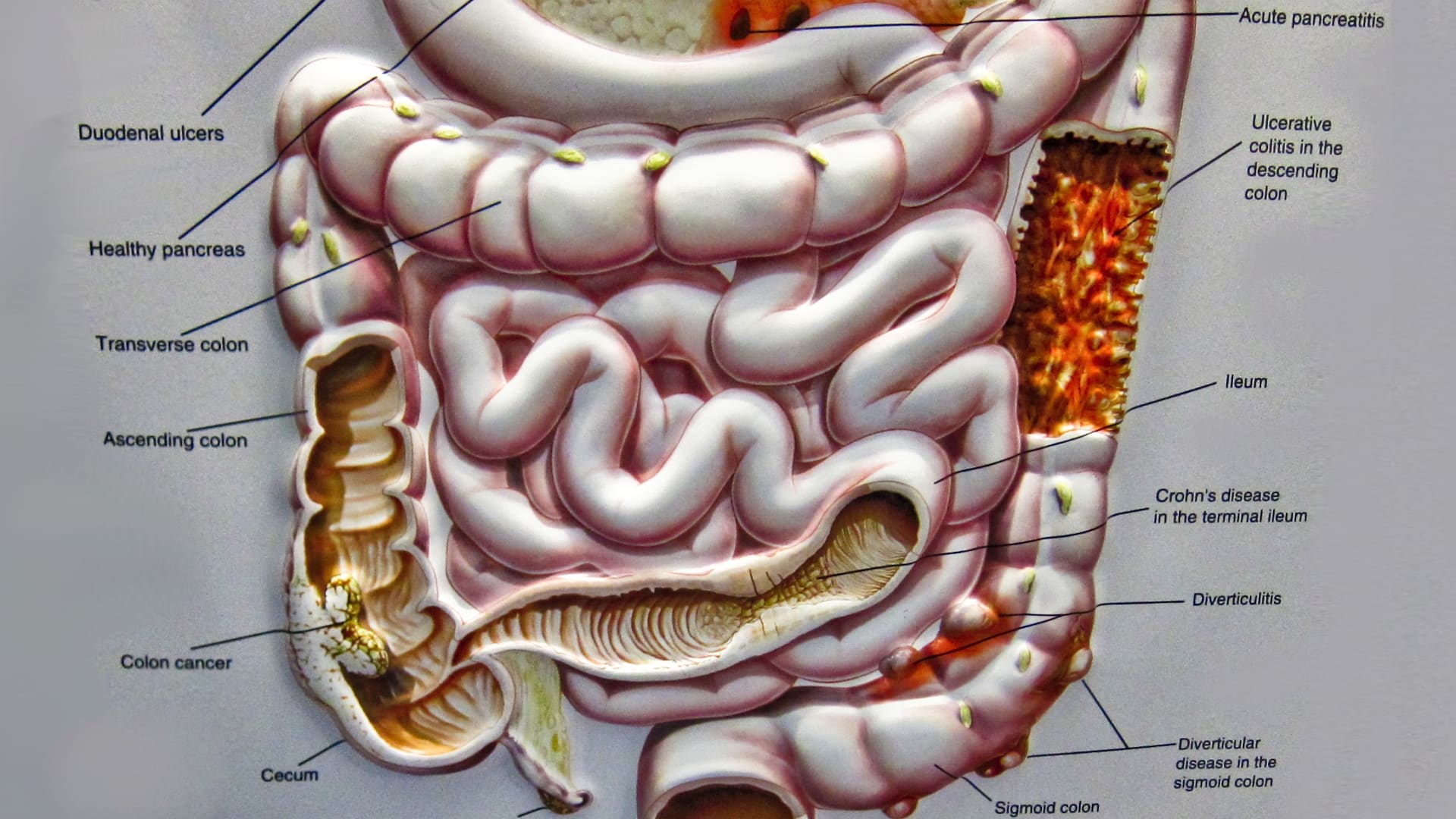
Preventing Crohn’s Disease with Diet
Diets centered around whole plant foods may help prevent Crohn’s disease through the benefits of...
Inhibiting Platelet Aggregation with Berries
The number one killer of Americans may be not eating enough fruit. Even if we...
Turmeric Curcumin and Osteoarthritis
The yellow pigment curcumin in the spice turmeric may work as well as, or better...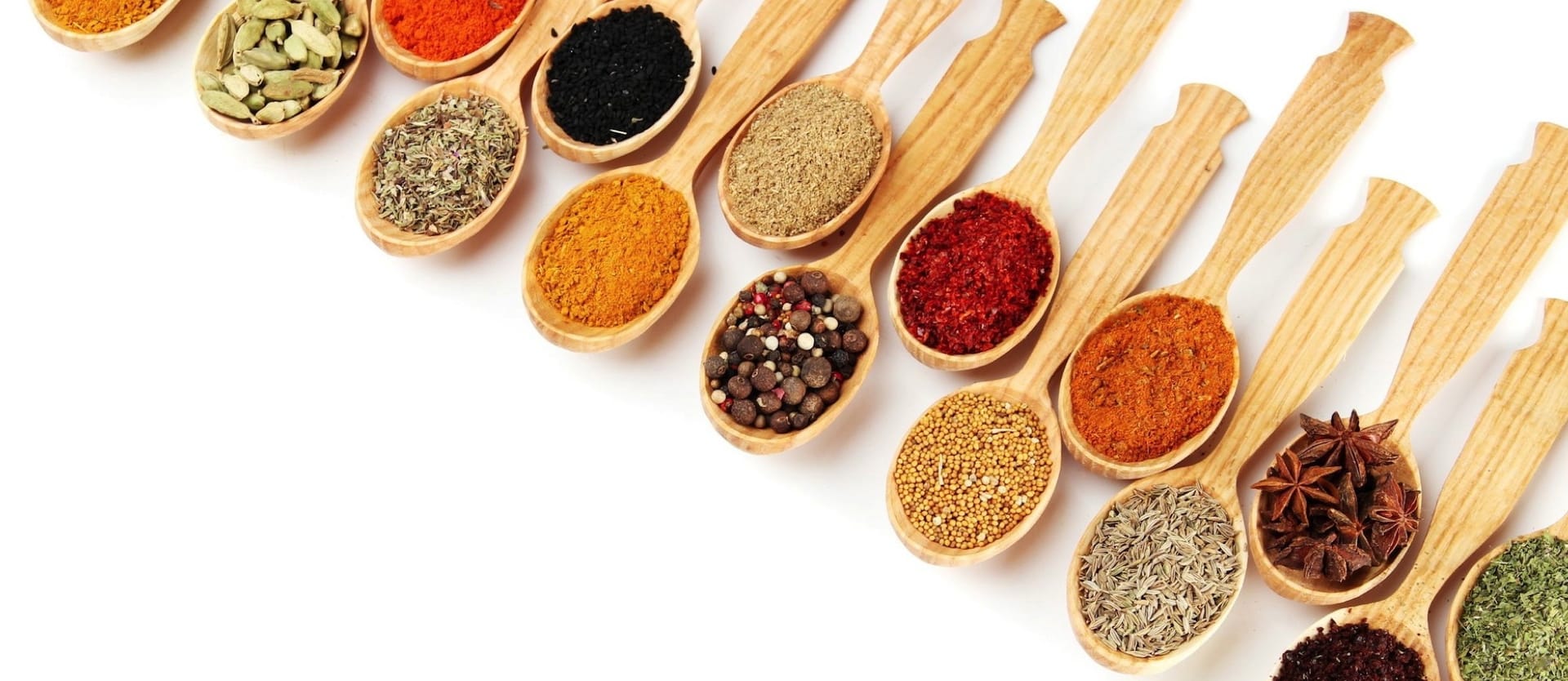
Turmeric Curcumin and Rheumatoid Arthritis
Randomized controlled trial comparing the safety and efficacy of drugs versus curcumin, the yellow pigment...
Dietary Treatment for Painful Menstrual Periods
Women suffering with dysmenorrhea who switch to a plant-based diet experience significant relief in menstrual...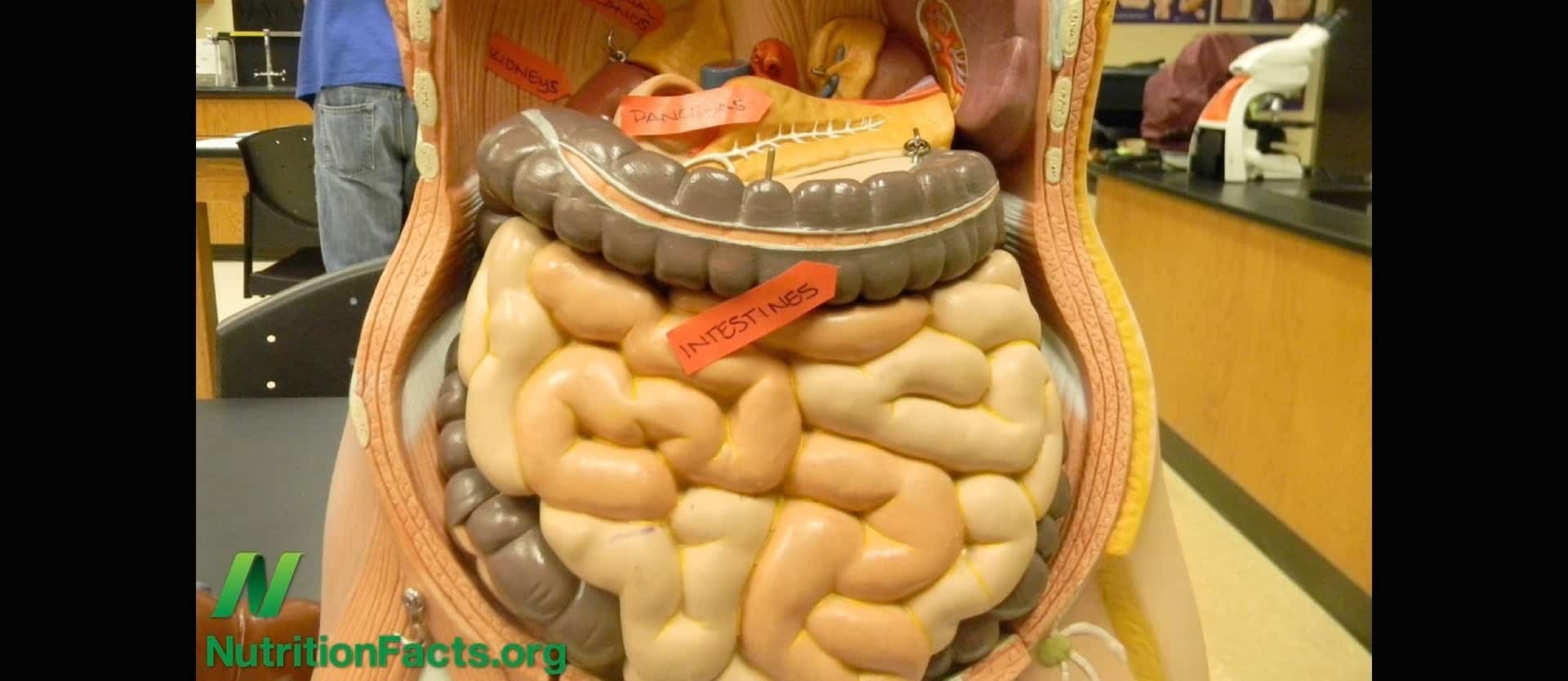
Dietary Treatment of Crohn’s Disease
Meat (including fish), cheese, and animal protein intake in general have been associated with an...All Videos for Inflammation
-

Are the Benefits of Cold Plunges and Cryotherapy Just a Placebo Effect?
There have been five placebo-controlled studies on cold water immersion. What did they find?
-

Like Beet Juice, Taurine Supplementation May Only Be Safe in the Context of a Plant-Based Diet
The adverse effects of taurine on our microbiome and hydrogen sulfide production may be ameliorated by diets high in fiber and low in saturated fats.
-

Caveats and Side Effects of Taurine Supplements
What are the downsides of taurine supplementation?
-

Taurine Supplementation Increases Lifespan and Healthspan in Animals
The level of taurine in our bodies declines with age, dropping by nearly 80 percent. Would consuming extra improve lifespan or healthspan?
-

Can Goitrogens in Soy and Cruciferous Vegetables Interfere with Thyroid Function?
What is the controversy over soy food consumption in those with subclinical hypothyroidism?
-

How to Prevent and Treat Age-Related Hearing Loss
The diet and supplements that have been put to the test to prevent and even reverse hearing loss.
-

Does Coffee Help Boost Autophagy and Lifespan?
In terms of longevity, three cups of decaf coffee appeared to be just as protective as three cups of regular coffee.
-

Preventing and Treating Sarcoidosis
The cause of sarcoidosis is unknown, but new research indicates that mycobacteria, like MAP bacteria found in dairy and meat products, are likely involved in some sarcoidosis cases.
-

The Benefits of Purslane for Treating Oral Lichen Planus
The weed purslane appears to not only be the safest treatment available for the autoimmune disease lichen planus, but the most effective, too.
-

Drug Residues in Meat and Their Effect on Antibiotic Resistance
What percentage of meat samples test positive for drug residue violations?
-

Is Black Pepper Good for You?
Typical daily doses of black pepper can affect the metabolism of certain drugs, so make sure you tell your prescribing health professional about your black pepper consumption.
-

Mercury in High Fructose Corn Syrup
There doesn’t appear to be any difference between the negative effects of high fructose corn syrup and table sugar on body fat, blood pressure, blood sugars, triglycerides, or cholesterol, but high-fructose corn syrup did appear to be more pro-inflammatory.
-

Diverticulosis Diet: Should Nuts, Seeds, and Popcorn Be Avoided?
From a rarity to an epidemic disease, diverticulosis is a disease of fiber deficiency.
-

The Benefits and Side Effects of Red and Green Rooibos Teas
Is green rooibos (analogous to green tea) healthier than red rooibos, the commercially more common oxidized form that’s akin to black tea?
-

The Third Way to Boost NAD+
How can we conserve NAD+ by preventing overactivation of the enzymes PARP-1 and CD38, which guzzle NAD+?
-

Lesser-Known NAD+ Boosting Supplements—Tryptophan, NADH, NMNH, and NRH
What are the pros, cons, and efficacy of dihydronicotinamide riboside (reduced NR), perhaps the most potent NAD+ precursor, as well as reduced NMN, taking NAD+ directly, or making it from scratch from tryptophan?
-

The Best Way to Boost NAD+: Supplements vs. Diet (webinar recording)
The pros and cons of all the NAD+ supplements and what are the ways to boost NAD+ naturally with diet and lifestyle?
-

Side Effects of Resveratrol Supplements
Resveratrol supplements may blunt some of the positive effects of exercise training.
-

Resveratrol Tested for Alzheimer’s, Arthritis, and Osteoporosis
Resveratrol appears to triple the rate of age-related brain shrinkage.
-

Does Resveratrol Benefit Our Metabolic Health?
Which conditions have resveratrol supplements been shown to help?
-

Three Reasons Fruits and Vegetables May Reduce Osteoporosis Risk
Even just a single extra serving of fruits and vegetables per day is associated with lower bone fracture risk.
-

Why Do Milk Drinkers Live Shorter Lives on Average?
How might we reduce the risk of premature death from dairy consumption?
-

The Best Sleeping Position for Glymphatic Flow in the Brain
What can we do to prevent the decline in glymphatic brain filtration as we age?
-

The Diet Shown to Slow Age-Related Hearing Loss
An interventional trial found that dietary changes may slow or even reverse the loss of hearing.
-

The Supplement Shown to Slow Age-Related Hearing Loss
Some studies found that higher levels of folate in the blood seem to correlate with better hearing, so researchers decided to put it to the test.
-

The Best Diet for COVID and Long-COVID
Healthy plant-based diets appear to help reduce the risk of severe COVID-19 and getting infected in the first place, even independent of comorbidities.
-

Yoga Put to the Test for MS, Back Pain, Neck Pain, Insomnia, and Breast Cancer
Is yoga better than other types of exercise, better than nothing but similar to other physical activity, or not beneficial even when it’s compared to doing nothing at all?
-

Greens, Green Tea, and Nuts Put to the Test for Telomeres
Not all plant foods are linked to less cellular aging based on telomere attrition, and not all animal foods are linked to more.
-

Plant-Based Diet for Minimal Change Disease of the Kidney
What are the three reasons plant protein is preferable to animal protein for kidney protection?
-

Dietary Cholesterol and Inflammation from Abdominal Obesity
The optimal intake of dietary cholesterol may be zero.
-

How to Treat Body Odor with Diet
Deodorize from the inside out with food.
-

Fecal Transplants for Ulcerative Colitis, MS, Depression, Bipolar, and Alcoholism
I go over randomized, controlled trials and case reports of stool transplants for various clinical conditions.
-

Plant-Based Diet for Treating and Reversing Stage 3 Kidney Disease
I share a touching story of the power of plant-based eating for chronic kidney failure.
-

A Case of Stage 3 Cancer Reversal with Fasting
I go over a case report of water-only fasting, followed by a whole food, plant-based diet for follicular lymphoma.
-

The Role of Endotoxins in Alzheimer’s and Dementia
Why can a single meal high in saturated fat impair cognition?
-

The Best Diet for Fibromyalgia and Other Chronic Pain Relief
Anti-inflammatory diets can be effective in alleviating chronic pain syndromes.
-

Effects of Tongue Scraping on Plaque, Gingivitis, and Cavities
Tongue scraping and tongue brushing have been practiced for centuries in many continents around the world, but do they do anything?
-

The Purported Benefits of Vitamin K2: Should You Take Supplements?
Our body can make vitamin K2 from the K1 in green leafy vegetables.
-

Advanced Glycation End Products (AGEs) and Cognitive Decline
AGEs may be one explanation for why those who consume meat may have up to three times the risk of developing dementia compared with vegetarians.
-

Why All Athletes Should Eat Plant-Based Diets
Enhance athletic performance with diet.
